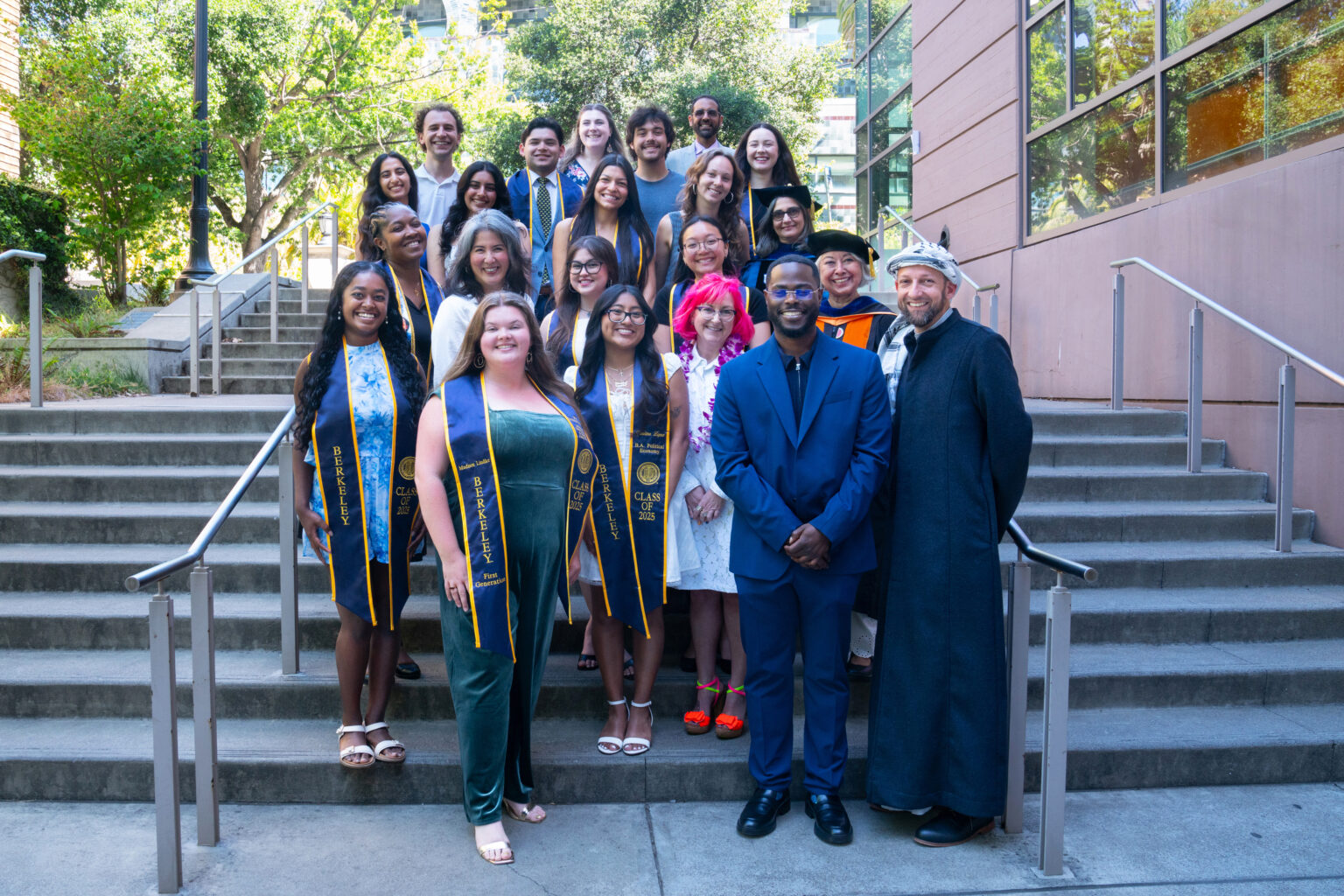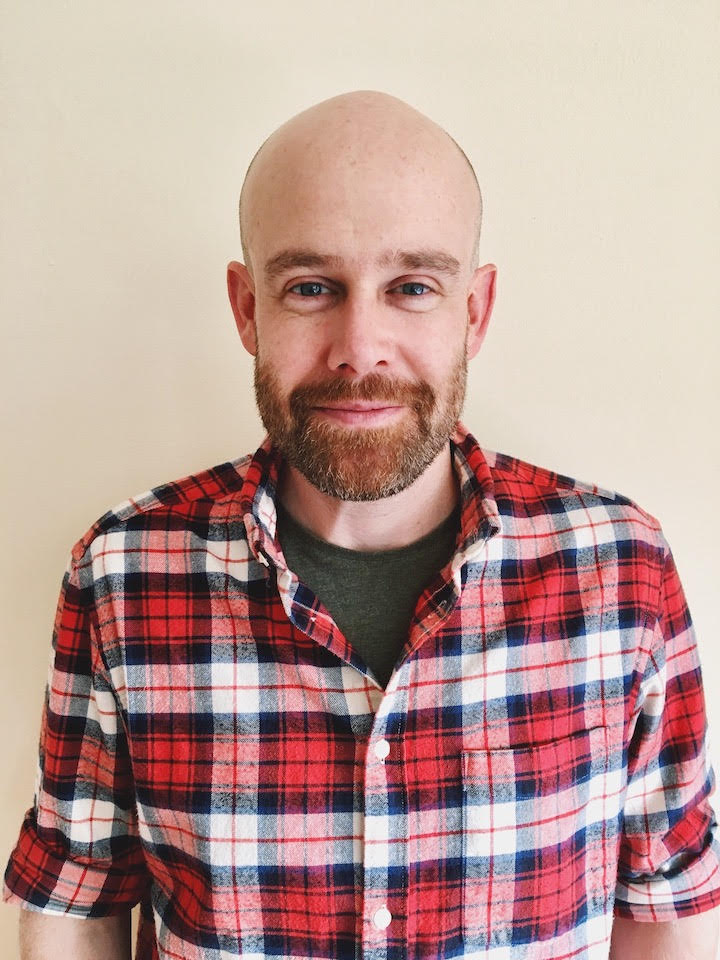As this year’s Global Poverty and Practice (GPP) graduates stepped onto the stage to receive their diplomas, they carried with them a hard-earned insight: the injustices they spent years studying weren’t distant or theoretical — they were urgent and unfolding all around them. Their time in the program has prepared them to enter the world beyond Berkeley with a strong sense of purpose, ready to confront poverty in a time of growing global uncertainty.
Earlier this month, friends and family filled Sutardja Dai Hall’s Banatao Auditorium to celebrate the commencement of the GPP minor’s Class of 2025, the 18th cohort of students to tackle poverty by studying the global systems and power structures that sustain inequality.
Director of the Global Studies Program and Chair of the GPP minor Elora Shehabuddin spoke to the significance of this historical moment, with graduates completing their coursework, she said, amid escalating climate disasters, emerging armed conflicts, and the first livestreamed genocide, carried out by the Israeli state against the Palestinian people.
“In every case, you learned to read and think beyond the headlines of mainstream media, to consider the histories of these conflicts and the power dynamics that shaped them, and to center the history of the human beings affected,” Shehabuddin said. “These graduates inspire all of us as champions for social justice, and they represent the best of UC Berkeley.”
This year’s graduating class includes over 30 students representing more than 20 majors. As part of the minor, students completed a personalized practice experience that involved interning or volunteering with a government agency, nonprofit organization, or community group working on poverty issues.
A defining element of the program, the practice experience is designed to help students bridge theoretical frameworks with real-world poverty action, and it held particular meaning for student commencement speaker and legal studies major Johnna Spikes.
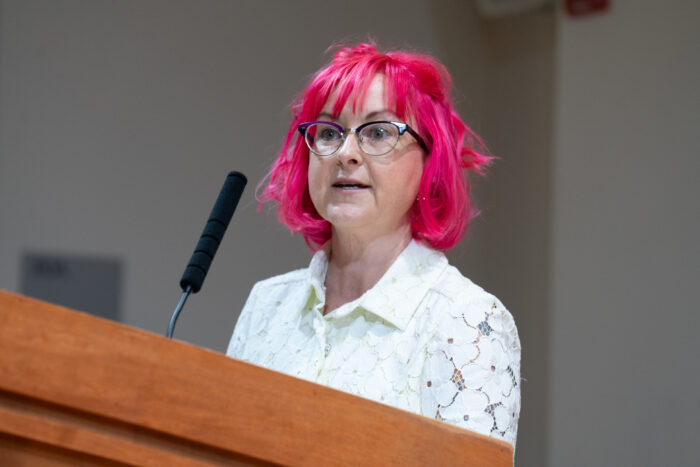
With a family history rooted in public service, Spikes spent much of her early life engaged in similar work. She pursued a career in law, working as a paralegal and office manager at the law firm of Haddad and Sherwin. At Berkeley, she deepened her commitment to justice through internships with Legal Services for Prisoners with Children and the Ella Baker Center for Human Rights.
She joined GPP to continue her work in public service, but what she learned reshaped how she approaches that work.
“I entered this minor with an idealistic desire to serve, as I believed that by helping those who are suffering, I’d be fulfilling some noble mission,” Spikes said. “I’ve come to realize that service without connection can become charity. True compassion doesn’t come from a place of distance, it comes from standing shoulder to shoulder, seeing the humanity in each other, and walking forward together.”
She volunteered with Old Skool Cafe, a San Francisco restaurant run by formerly incarcerated, foster care, and at-risk youth. More than just a place to eat, the cafe operates as a violence prevention program, offering job training and meaningful employment.
At Old Skool, she saw firsthand how young people often pushed to the margins weren’t treated as problems to be fixed, but as leaders — shaping the menu, helping run the restaurant, and building the kind of community they wanted to see.
“That’s what love looks like when it is rooted in justice,” Spikes said. “In this work, compassion isn’t a gesture of service, it’s a radical act of kinship grounded in the belief that there is no us and them, only us. The fight against poverty and injustice isn’t just something we choose to do, it’s something we’re here for.”
Similarly, the minor challenged student speaker and civil engineering major Anahita Banerjee to dig deeper in her search for solutions to global inequality. She has extensive experience in global water access, and her fieldwork spans rural India, Peru, and California, where she’s partnered with local communities to develop clean, dependable water infrastructure.
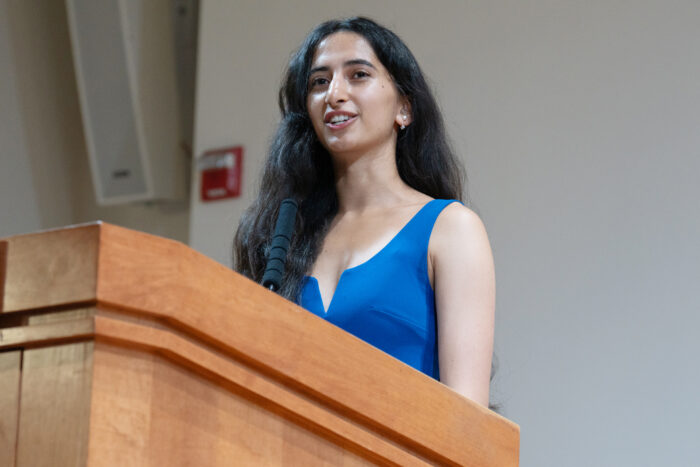
As a GPP minor, she said her daily assignments challenged her to confront global issues by asking tough questions like, “Why is there a housing crisis in the Bay Area? Why does the U.S. have the highest incarceration rate in the world?”
She added that simple answers—blaming things like lack of wealth, infrastructure, or education—wouldn’t cut it. Instead, the program pushed students to keep digging until they uncovered the deeper systems behind these problems: a prison system profiting from forced labor, or policies that force formerly colonized countries to prioritize debt payments over vital infrastructure.
“Yet, I would still call these B+ answers at best, because our homework is incomplete if it remains passive,” Banerjee said. “The most important question that this minor instills in us is, ‘What are we going to do about it?’”
Driven by that same sense of responsibility, she plans to work as a reporter for a nonprofit covering water issues, and then pursue a master’s degree at the University of Oxford in Water Science, Policy, and Management.
Facing her classmates, she expressed confidence that they will all continue to ask these critical questions and strive to “earn that A+.”
“Some of us may continue working with nonprofits, while others will work as doctors, teachers, or social workers,” Banerjee said. “However, all of us will go on to be outstanding members of society and not allow ourselves to turn away from the injustices around us.”
The ceremony concluded with a speech from GPP alumnus Jamal Khan. He graduated as part of the second cohort of GPP students in 2009, and went on to attend Harvard Law School. Since then, he has held positions in both the federal government and politics, including the Obama White House and Kamala Harris’s Senate campaign. He currently serves as an attorney for The Homeless Action Center.
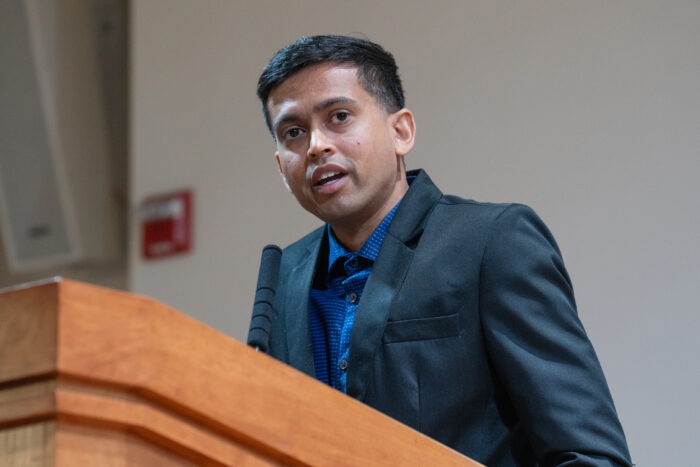
Drawing from his experiences in legal advocacy and direct support for unhoused individuals, incarcerated people, and those facing mental health challenges, he emphasized that dehumanization—whether in the language of war or in the bureaucracies of everyday life—is often the precursor to violence and neglect.
Khan left graduates with a powerful closing message:
“No matter the vantage point from your organization or your role, if you find yourself feeling uncertain or confused, the most important thing you can do with regard to those you’re trying to help, is to remember humanity,” Khan said. “Conågratulations, I wish you all the best. Go out there and do big things, go-getters.”

